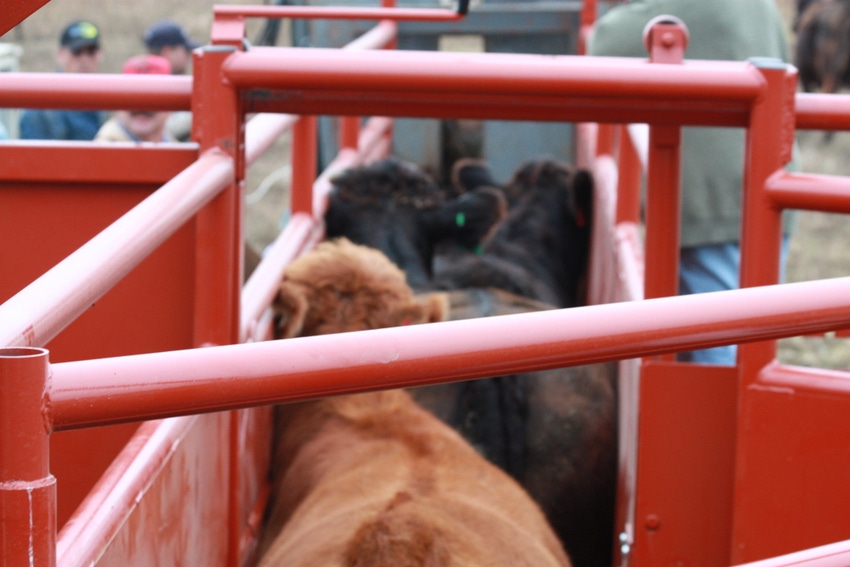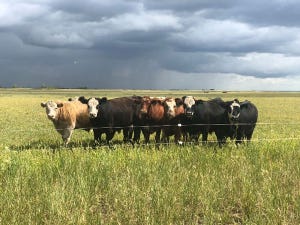Sometimes being a leader means taking a step back from the front and allowing the next generation to take charge. Here’s how this strategy could benefit your cattle enterprise.
February 7, 2018

The average age of the U.S. rancher today is inching closer to 60 years old. However, despite most people eyeing retirement as they near 65, for agricultural producers, retirement often means one of two things happen — you’ll work until you are no longer physically or mentally able to or you’re funeral date is set on the calendar.
And although you may have a younger generation itching to take over the reins, it can be difficult to transition from a leadership position to a different role as the “help” and a seasoned mentor. This often leads your on-farm children frustrated and in the position of needing to answer to Mom and Dad when they are well into their 40s and 50s.
Does this dynamic sound familiar? It sure does for my family’s operation. If you can also relate, perhaps the advice from Starbucks CEO Howard Schultz may be helpful.
I recently read an article by John Eades for LinkedIn titled, “The most undervalued characteristic of leadership according to this CEO.” Eades interviewed Schultz, who explained how being vulnerable and asking for help has been the key to his success as the leader of one of the most popular coffee brands in the world.
Yet, being vulnerable and asking for help is difficult for most, particularly if you’re used to being in charge and handling things yourself.
READ: 7 tips for leading the ranch forward
In his article, Eades writes, “The wisdom of Schultz’s comment should be evident, but surprisingly, most leaders tend to struggle with it. In my company's recent research of over 20,000 leaders for the Welder Leader Program, the top characteristic managers struggle with is being vulnerable and asking for feedback from their team. If as a leader of people you can break through what's keeping you from baring your truths, it will pay off.”
Eades says there are three key benefits to leaders who can be vulnerable with their team and consistently ask for feedback. These benefits include:
1. Build better relationships
Because we tend to focus on the vision, strategy and execution of the business, we can sometimes fail to listen and implement ideas from family members. Think about it. In the cattle business, we are often so involved in the daily jobs of the operation — hay needs fed; cows are calving; the utilities bills are due; that fence needs fixing — and we can often let slip the larger ideas for growth and expansion that the next generation may want to focus on.
Failing to listen and clearly communicate with all invested parties can result in bitterness and resentment which, in turn, hurts the business and can sever relationships with family members.
READ: How can we train the next generation of ranch managers?
2. Improve self-awareness
While it’s never fun to hear about your own shortcomings, there is always room for improvement. Perhaps your college-age son or daughter has brought home an exciting idea from class that could improve your operation; do you immediately dismiss it because it’s not “your way” or do you take the time to walk through the strategy and see if it’s a viable change for your business?
Opening yourself up for feedback can help you work on a greater level and achieve more in your daily operations; if, that is, you’re willing to be flexible and listen to other ideas that aren’t your own.
3. Create a more engaged team
Eades writes, “The statistics about employee engagement continue to be staggering. The latest research by Gallup shows 70% of all employees aren't engaged in the work they do. The main cause for this is poor front line management and leadership as a whole. By being a more vulnerable leader and asking for feedback from team members, the engagement level of the team will begin to rise.”
For ranching families, we want everyone involved in the operation — from the off-farm siblings, to the in-laws, to the multi-generations actively engaged in the ranch—to be excited about what we’re doing. This helps keep everyone motivated and invested in the success of the ranching business.
READ: 18 expectations of a profitable ranch manager
The next time you sit down for a family business meeting or talk shop with your on-farm child during a morning coffee break, take the time to ask questions, be open for feedback and look for ways to implement the ideas of everyone involved.
Being a leader doesn’t always have to mean charging forward from the front of the line; sometimes it can mean taking a step back and letting others involved in the business shine. You may not be ready for retirement, but it might be beneficial to utilize the youthful energy and ideas of the next generation you’re working with.
The opinions of Amanda Radke are not necessarily those of beefmagazine.com or Farm Progress.
About the Author(s)
You May Also Like





